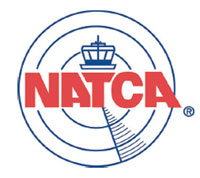Wed, Aug 03, 2011
Controllers Allowed Back Into Cockpits As Part Of Voluntary
Training Program
 The FAA announced that, effective Monday, air
traffic controllers will once again be able to ride in aircraft
cockpits with commercial pilots as part of a voluntary education
program. The Flight Deck Training program is designed to improve
safety by giving air traffic controllers a greater understanding of
the pilots’ experience and workload in the cockpit.
“We’ve worked together to create a credible and secure
flight training program that will enhance safety through increased
education,” said Transportation Secretary Ray LaHood.
The FAA announced that, effective Monday, air
traffic controllers will once again be able to ride in aircraft
cockpits with commercial pilots as part of a voluntary education
program. The Flight Deck Training program is designed to improve
safety by giving air traffic controllers a greater understanding of
the pilots’ experience and workload in the cockpit.
“We’ve worked together to create a credible and secure
flight training program that will enhance safety through increased
education,” said Transportation Secretary Ray LaHood.
“This program gives our new generation of air traffic
controllers a chance to see and hear what the pilot is experiencing
so they know exactly what is happening on the other end of the
microphone,” said FAA Administrator Randy Babbitt. “As
a pilot, I think this important training will give controllers a
richer picture of the airspace system.”
The Flight Deck Training program replaces a previous program
called Familiarization Training, or FAM trip, which was suspended
in 2001. The FAA worked closely with the Transportation Security
Administration and the National Air Traffic Controllers Association
(NATCA) to develop the new program. Because it is designed to
enhance the controller’s understanding of the air traffic
system and specifically how air traffic specialists interact with
the flight deck crew, controllers will always be on duty during
training and cannot take the training in conjunction with any
leave. Controllers will be limited to two training trips in a
calendar year instead of the eight that were permitted under a FAM
trip, and controllers will not be allowed to fly to the same
airport on consecutive flights. A controller must have advance
approval to participate and must also submit an itinerary, as well
as medical and security information. Foreign travel is not
permitted.
 Once approved, the controller must present
unique identification to access the cockpit. During the flight, the
controller must complete pre-approved training objectives as he or
she observes the flight crew. Examples include aircraft preparation
procedures prior to the flight, taxi instructions and procedures,
departure delays and ground stops, types of approaches, enroute
weather and flow constraints.
Once approved, the controller must present
unique identification to access the cockpit. During the flight, the
controller must complete pre-approved training objectives as he or
she observes the flight crew. Examples include aircraft preparation
procedures prior to the flight, taxi instructions and procedures,
departure delays and ground stops, types of approaches, enroute
weather and flow constraints.
Flight Deck Training is being introduced as a pilot program that
the FAA will evaluate and monitor over the next six months.
More News
He Attempted To Restart The Engine Three Times. On The Third Restart Attempt, He Noticed That Flames Were Coming Out From The Right Wing Near The Fuel Cap Analysis: The pilot repor>[...]
Make Sure You NEVER Miss A New Story From Aero-News Network Do you ever feel like you never see posts from a certain person or page on Facebook or Instagram? Here’s how you c>[...]
From 2009 (YouTube Edition): Leading Air Show Performers Give Their Best Advice for Newcomers On December 6th through December 9th, the Paris Las Vegas Hotel hosted over 1,500 air >[...]
Aero Linx: NASA ASRS ASRS captures confidential reports, analyzes the resulting aviation safety data, and disseminates vital information to the aviation community. The ASRS is an i>[...]
“For our inaugural Pylon Racing Seminar in Roswell, we were thrilled to certify 60 pilots across our six closed-course pylon race classes. Not only did this year’s PRS >[...]
 NTSB Final Report: Rutan Long-EZ
NTSB Final Report: Rutan Long-EZ ANN FAQ: Turn On Post Notifications
ANN FAQ: Turn On Post Notifications Classic Aero-TV: ICAS Perspectives - Advice for New Air Show Performers
Classic Aero-TV: ICAS Perspectives - Advice for New Air Show Performers ANN's Daily Aero-Linx (06.28.25)
ANN's Daily Aero-Linx (06.28.25) Aero-News: Quote of the Day (06.28.25)
Aero-News: Quote of the Day (06.28.25)




